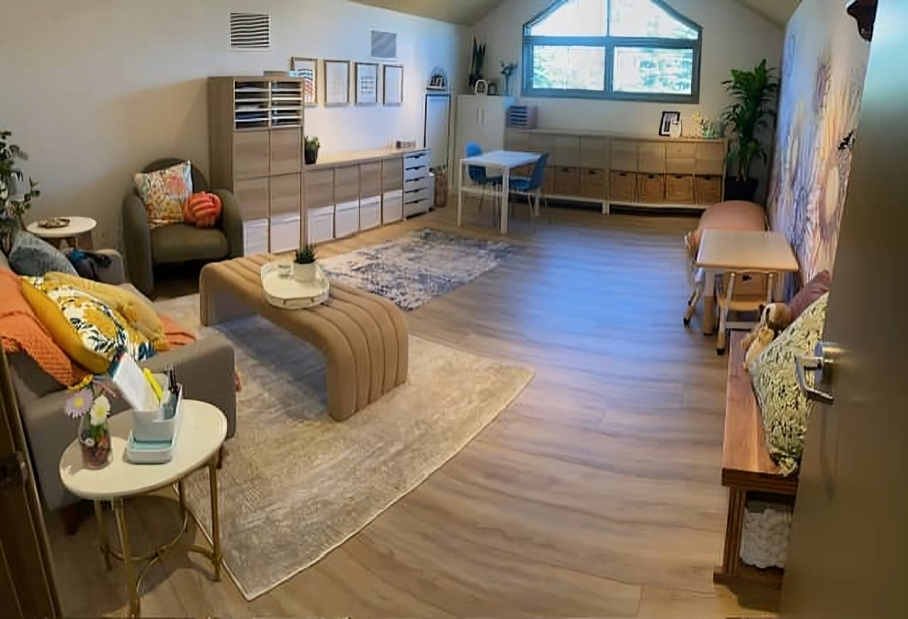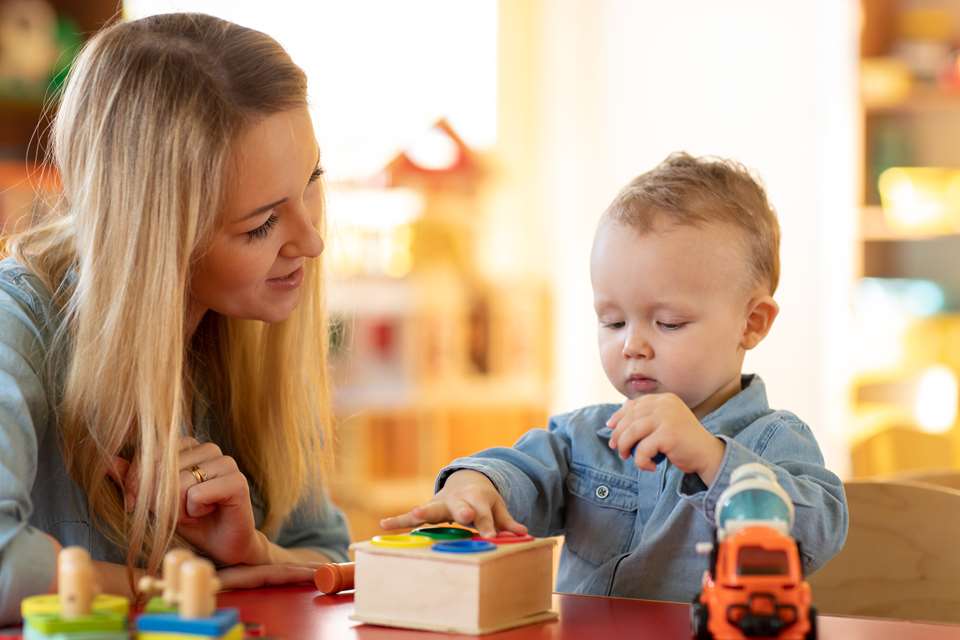Occupational Therapy Near You
At our family health centre, we are dedicated to supporting your well-being through a comprehensive range of services, and our occupational therapy in NW Calgary (OT) is a cornerstone of our holistic approach. OT is all about empowering you to perform everyday activities with confidence and ease, no matter the challenges you face.

What is Occupational Therapy?
Occupational Therapists (OTs) help people across the lifespan participate in the things they want and need to do through everyday activities, also known as “daily occupations”. This includes self-care, productivity and leisure skills. But really, it’s anything that is meaningful in a client’s daily life.
For toddlers and kids, this means pediatric OTs will engage kids in their primary childhood occupation — PLAY! Using a holistic, strength-based approach, our OT team will use a variety of toys, materials, sensory and movement-based activities to help them learn new skills and engage more functionally across daily life.
For adolescents and teens, they will be active participants in their own goal setting and once they truly understand their differences and uniqueness, they can then choose specific and individualized strategies/tools to improve their capacity for learning, participating and thriving in all that they do.
Parents and caregivers will also be empowered during OT sessions to see their child through “softer eyes” and learn how to better understand and support their child at home, school and the community.

Areas Supported by Pediatric Occupational Therapists Include:
- 1. Fine Motor Skills: How a child uses the smaller, more precise muscles of the hands and fingers for activities such as drawing, coloring, cutting, printing, manipulating objects etc.
- 2. Printing/Handwriting: This can include an informal/formal assessment of your child’s handwriting skills and targeted intervention to improve pencil grasp, letter formation, size consistency, spacing and speed.
- 3. Executive Functioning: These include our higher-level cognitive skills such as memory, organization, planning, impulse control, reasoning, attention/focus, self-regulation and time management etc.
- 4. Organizational Skills (Praxis of Motor Planning): How a child can plan, organize and carry out the steps of a complex or multi-step activity. We work with children with/without a diagnosis of Developmental Coordination Disorder (DCD).
- 5. Visual Processing Skills: This is how children interpret the visual information from their environment. This is an important skill for early literacy skills such as reading and writing.
- 6. Task Engagement: We can evaluate how a child can focus and maintain their attention to a person or activity. We also support children with problem solving, and expand their social skills, play skills and ability to follow routines.
- 7. Self-Help Skills: This includes how we take care of ourselves and engage in daily occupations such as dressing, hygiene, feeding/picky eating, sleep and toileting skills.
- 8. Sensory Processing: Sensory processing refers to the way that the nervous system receives, interprets and responds to sensory input. Sensory processing is a complex process that affects functional performance in all daily routines and activities.
- 9. Self-Regulation/Stress Management Skills: This includes our ability to regulate our brain and body (i.e. nervous system) as well as our emotions. Self-regulation is affected by our ability to manage stress and is a balance of energy and tension which is necessary to meet the demands of our daily lives.
- 10. Nervous System Regulation: The Safe and Sound Protocol (SSP) is a powerful listening therapy designed to help regulate the nervous system, so you can better connect with yourself, others and the world around you. The benefits of this program include improved stress response, better emotional regulation and resilience and more social connection and deeper relationships.
Come to Synergea for Pediatric Occupational Therapy in NW Calgary (or What You Can Expect when you Visit Synergea for Pediatric Occupational Therapy in NW Calgary?)
- Initial Intake – Starting with a detailed initial intake/developmental history, we explore your child’s unique strengths and challenges and will discuss your parent priorities and goals for therapy.
- Assessment – We will administer individualized formal standardized assessments (if necessary) to determine your child’s current skills and abilities as well as areas of need and the best framework or approach to therapy.
- Customized Therapy Plan – Based on the results of the assessment/initial intake session, our skilled OT will design a personalized plan that addresses your goals. This may include programs, adaptive strategies and tools and modifications to your environment.
- Hands-On Therapy Sessions – Throughout your sessions, OTs will use play and strength-based approach to teach the child (and their caregivers) new skills and better ways to engage more meaningfully in all aspects of their daily lives.
- Ongoing Support – Your child’s progress is carefully tracked, and we adjust your child’s therapy plan as needed. Our goal is to ensure you achieve the best possible outcomes and both child and caregivers feel empowered with the knowledge and skills they need to learn, grow and blossom in all aspects of daily life.
Find Helpful Occupational Therapy Near You!
At our Synergea family health centre, we’re committed to providing exceptional, client-centered care. Our skilled team of NW Calgary occupational therapists is committed to guiding you through challenges and helping you reach your personal goals. With a focus on holistic and individualized treatment, we are here to support every aspect of your well-being.
📍Find Your Path to Us on Google Maps.
FAQ
Occupational therapy (OT) helps people perform everyday activities with confidence, focusing on self-care, work, leisure, and meaningful daily occupations.
They use play-based, strength-focused activities to improve skills like fine motor, sensory processing, self-regulation, and task engagement in children.
Fine motor skills involve precise movements of hands and fingers, essential for tasks like writing, cutting, and manipulating small objects.
OT improves motor planning, task sequencing, and overall organization, especially for children with developmental coordination challenges.
